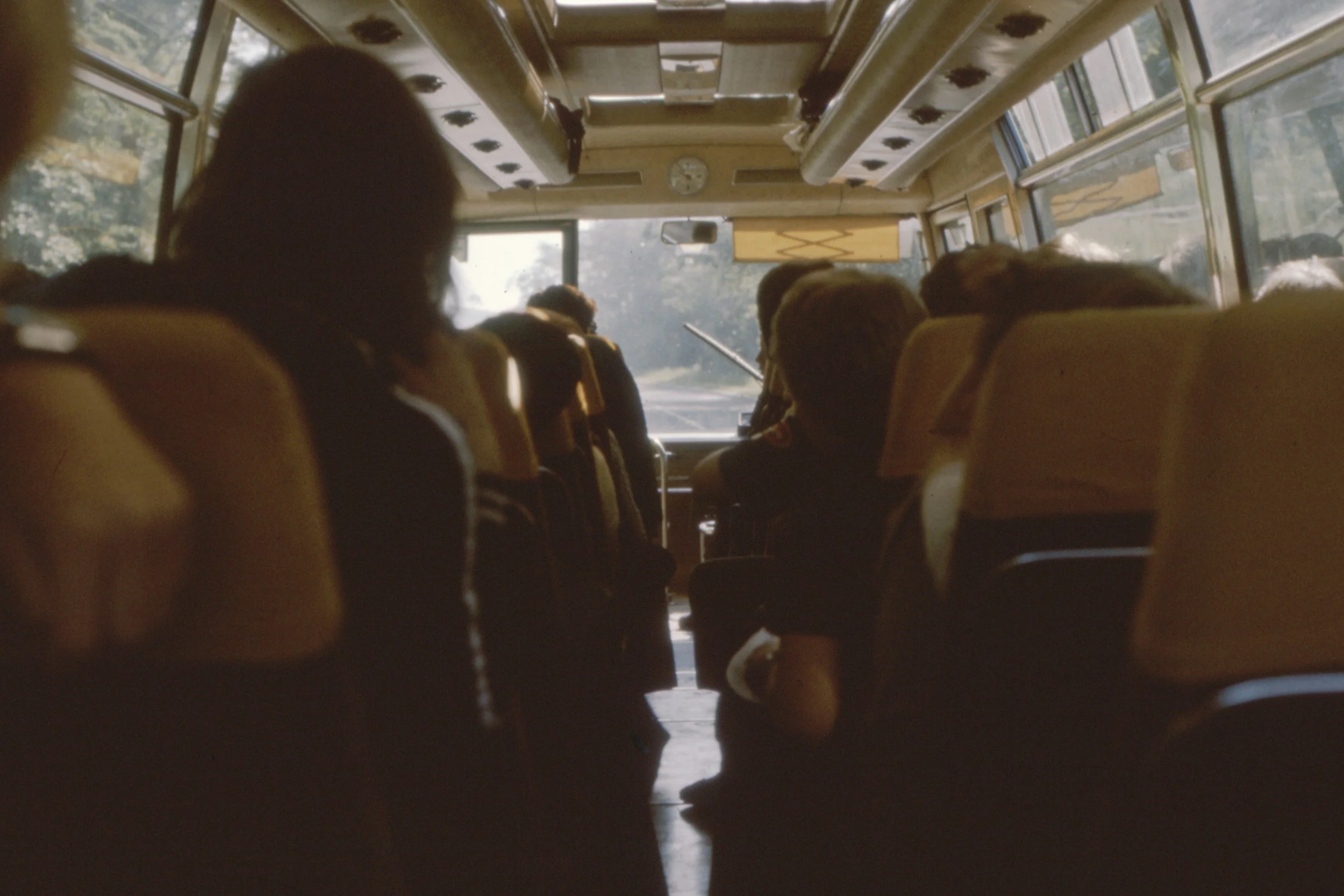Never Not in Love
It took me ages to feel confident about saying I was “in love” with my first boyfriend. I didn’t understand what the threshold was, where affection crossed from love to LOVE; I figured this was because I’d never been in love before. When I finally did tell him, I laced the profession with caveats, afraid to be put on the stand and accused of lying at some theoretical future breakup.
But now that I’ve had another fourteen years of experience with love (including the heartbreak that ended that first relationship, and a second love that has led to marriage), I think I understand myself and my reluctance better. I think I didn’t know what it meant to be “in love” not because I’d never experienced it, but rather because I’d never not experienced it.
Let me explain.
I’ve always been . . . well, I would describe it as affectionate, or deeply caring, but I suspect my parents and some other people would say needy. Either way, I’ve always loved the people I care about hard. Maybe too hard. And the distinction between platonic and romantic love has sometimes been difficult to define, beyond the overly simplistic question of whether or not I want to have sex with someone (which requires defining what counts as sex, too).
Now that I’m older and have been in love multiple times, I can see how I’ve spent my whole life feeling the ache of being in love in some form or another. As a child, I was often wild with jealousy about friendships and desperate for more affection from my parents; as a teenager and a college student, I was constantly wounded by unrequited feelings for both male and female friends (and one poetry teacher). I managed to keep these feelings to myself, only expressing them to others at a palatable level, but their intensity left me feeling extremely lonely for much of my life.
Once I fell into requited romantic love with my first boyfriend, I was surprised to discover that it didn’t stop me from continuing to develop strong feelings for other people (although I knew better than to act on them). For a long time, after that boyfriend-turned-fiancé broke my heart, I was in love with three men at once—including him. I kept loving that man for far too long, well into my next relationship. Not only was I not out of love between fiancés, but I’ve likely never been out of love at all, depending on how you define it.
This was all difficult to admit to myself, since I had long held the position that it should be impossible for a person to be in love with two people at the same time. Lust, sure, but LOVE? No way. Turned out I just hadn’t experienced the intoxicating effect of deep respect and affection mixed with attraction, which is, of course, possible to find in myriad men and women.
Nonetheless, nothing compared to having that intoxicating feeling reflected back at me, to being able to share the intensity of my feelings, and expect reciprocity, without fear of being shamed for wanting too much.
My first boyfriend, who became my fiancé, who betrayed me and broke my heart—he was the first person ever to show me what it was to have the cavity of love-need inside my chest overflow. Ending aside, ours was a relationship founded on constant support and enjoyment of each other, both physically and intellectually, and to say I relied on it would be to understate massively the extent to which my life depended on our love. When it ended, I did too.
But when I clawed my way out of the emotional grave I’d dug for myself with all that reliance, I brought something with me: the knowledge that I didn’t have to love this hard without the promise of reciprocity. I’d had it once, and maybe I could have it again with someone else (if only I could stop wishing to have it with him, somehow purified of his betrayal—that was a dream that we both kept on life support for far too long).
And I did, eventually. I spent a year and a half climbing out of that hole, the love I’d felt my whole life sickened, subdued, with occasional excruciating flare-ups for my ex and tear-filled gushes at the friends who pulled and coaxed me the whole time. When I met my next mutual love, I still had one foot stuck in the grave of that past relationship, was still communing with my ex’s spirit daily. My new love saw this, and he was kind to me anyway. He came to visit me in the graveyard, and he sat with me at the edge of my gaping, filthy pain, and we picnicked together and talked about our dead loves, our unfilled hearts, our loneliness. He understood me, and he was patient with me, and soon enough he loved me.
I loved him too. First in the way I’d always loved everyone: fascinated by his intellect, bowled over by his sense of humor, flushed by his body beside mine. But after a long infusion of his love, less reciprocated than he deserved, had filled my need to the brim, I finally had enough courage to love him back with a capital L. But even the mutual filling-up love between us didn’t pull me out of the grave completely—that took months of effort on my part and support on his. His heart pulling me back to the land of the living; my ex’s heart keeping me tethered to the corpse of what came before.
All the while, my heart was healing—two steps forward, one step back as my ex tore off chunks with the force of his need, but it was progress nonetheless. The love I’d always felt for my friends had never gone fully dormant, only died back a bit, and with better soil it bloomed anew. The empty ache I’d carried for my parents filled up, not with more love but with a base layer of something like self-care, and so the empty space was smaller, less painful. And slowly, bit by bit, I became whole enough to shake off the hooks of my past and turn my heart to face the future.
-Anne Putnam
Anne H. Putnam lives in northwest Washington with her husband and their cat. Her first book, Navel Gazing: One Woman's Quest for a Size Normal, was published by Faber & Faber in the UK in 2013 and her essays have appeared on the popular wedding site A Practical Wedding; she is currently in the final revision stages on her second memoir. Instagram: ahputnam. Twitter: @ahputnam.






















